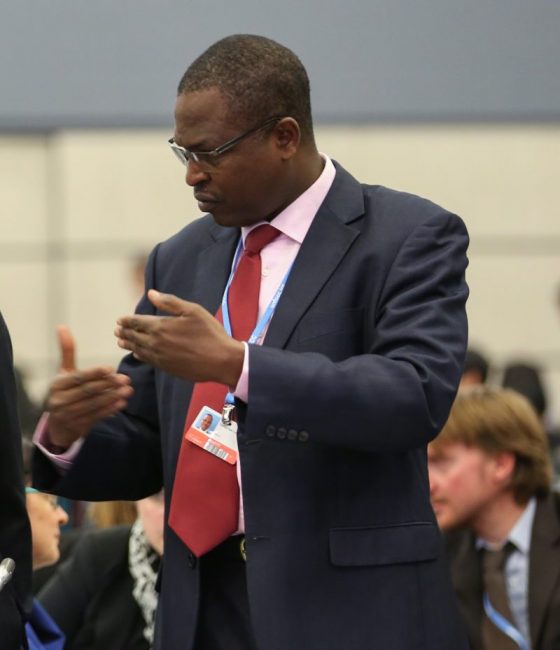Three African nations being assisted by the European Union (EU) at the recently held UN climate change talks (COP22) in Marrakech, Morocco shed light on their Measurement, Reporting, and Verification (MRV) status, in the light of the realisation of the Paris Agreement.

At a side-event organised by the EU titled: “Preparation of African countries for Measurement, Reporting, and Verification (MRV) requirements under the Paris Agreement – Showcases and lessons learnt,” Nigeria, Ethiopia and Egypt showcased their commitment and achievements to developing MRV systems with support from the EU.
The side-event, which advocates for a greater effort to develop holistic and sustainable national MRV systems across African countries, featured discussions and presentations, which the organisers believed would inspire other African countries to launch their domestic MRV system to enable them meet the Paris Agreement requirements.
The Paris Agreement’s backbone is a transparency framework to track how countries are progressing on their commitments. Rules for how this framework will operate are essential for holding Parties accountable and for enhancing understanding among countries.
The Paris Agreement established a universal system of transparency for MRV, with built-in flexibility taking into account countries’ different capacities. This is based on the premise that effective MRV can help countries understand emissions sources and trends, design mitigation strategies, enhance credibility and take other policy actions.
At the side-event, AMCEN president and Minister of Environment of Egypt, Dr. Khaled Fahmy, described MRV as a very important issue in the balance between adaptation and mitigation.
“We are looking forward to a self-sustained MRV system among African countries,” he said, full of optimism during an opening remark.
Amina Mohammed, Nigeria’s Environment Minister, stated: “The political context is vital. There’s need to underscore the historic nature of the Paris Agreement. We are in Morocco today because we want to implement the ambition in Paris. The INDCs were key points in Paris, and the MRV is going to be key in keeping the momentum and keeping us on course and checking that we are not going astray every now and then.”
Hans Bergman, Head of Unit at the EU, said: “The MRV is very important in the UN process, and we consider it very important for countries to have a good MRV for the Paris Agreement. MRV systems can ensure ambitious gap, what we need to do to reach below 2oC objective. Nigeria, Ethiopia are being supported in this regard and we hope that other countries will strive to produce a good MRV.”
During the presentations session, each country spoke on ways being explored to curb emissions via various approaches (such as the NDCs) keeping in mind MRV strategies.
For instance, Sherif Abdul-Raheem, who is Director, Climate Change Department in the Egyptian Ministry of Environment, explored the country’s MRV status, saying that sustainable MRV system is essential for, among others, doing needs assessment.
Nigeria’s Peter Tarfa, Director in the Department of Climate Change of the Federal Ministry of Environment, disclosed that, due to the country’s huge GHG footprint, in the light of the fact that it has a large economy as well as population, “we therefore need a robust MRV process.”
According to him, the country’s MRV system is hinged on issues related to its Vision 20:2020 and National Policy on Climate Change documents.
Gebru Endelow, National Climate Change Negotiator of Ethiopia, gave a detailed account of his country’s climate change policy and programmes, saying that the country would embrace MRV systems in its processes toward implementing its NDC.
The gathering underlined the need to develop common rules, procedures and guidelines to enhance the UNFCCC’s current MRV system. Observers believe these guidelines are key to improving transparency, reporting and environmental integrity, but they must also provide developing countries with the flexibility needed to reflect their different capabilities and national circumstances.
